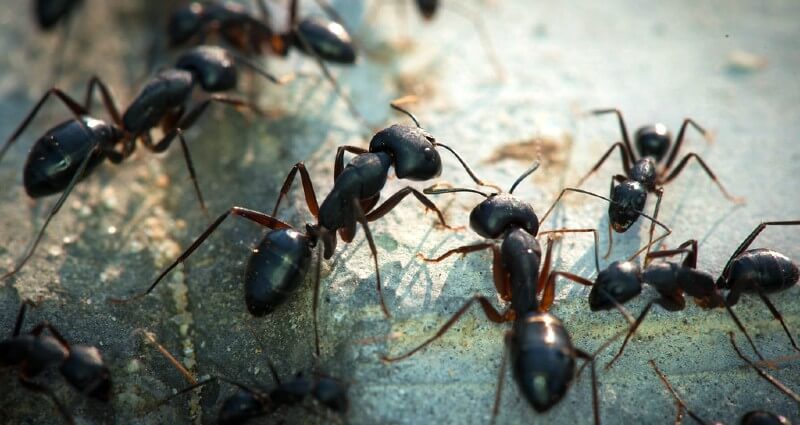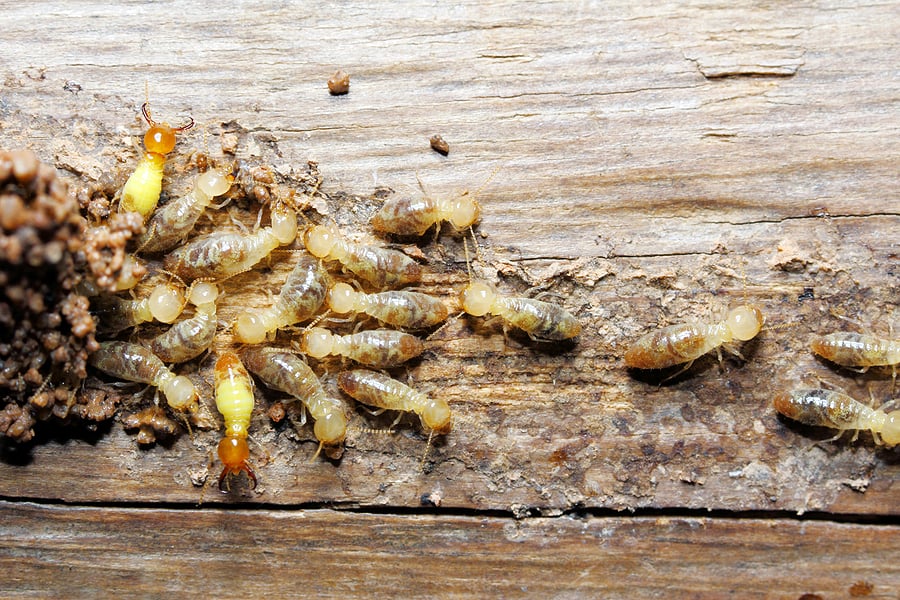Economical Ant Control Solutions: Keep Your Space Ant-Free
Environmental Influence of Insect Control: Balancing Performance With Sustainability
The ecological impact of bug control is a vital problem that requires a delicate balance between attaining effectiveness in guaranteeing and managing parasites sustainability of our environments. As we aim to protect our crops, homes, and health and wellness from the hazards posed by parasites, the methods we utilize can inadvertently hurt the environment. From using harmful chemicals that leak into our soil and water to the unintended consequences on non-target types, the repercussions of standard bug control techniques are significant. However, there are emerging methods that offer expect a much more sustainable strategy to pest management. These services not only objective to resolve the prompt bug problems however likewise think about the long-lasting health and wellness of our earth.
Unsafe Chemicals in Insect Control
The application of hazardous chemicals in pest control postures significant environmental and wellness dangers that call for careful factor to consider and reduction methods. Insecticides, herbicides, and pesticides are frequently utilized to remove pests, yet their widespread application can bring about unintended consequences. These chemicals can pollute dirt, water sources, and the air, influencing not just the targeted insects yet additionally beneficial pests, wildlife, and humans.

To deal with these risks, incorporated insect management (IPM) strategies are being advertised as a much more sustainable alternative. IPM involves a combination of approaches such as organic control, environment manipulation, and the targeted use pesticides as a last option (ant control forest nc). By taking on a holistic approach to pest control, we can reduce the ecological and health and wellness influences connected with unsafe chemicals while properly managing pest populaces
Effect On Non-Target Species
Considering the unexpected effects of parasite control techniques, the influence on non-target species is an important facet that needs thorough evaluation. While insect control steps aim to target particular insects, various other microorganisms in the ecosystem might be inadvertently impacted. Non-target types, consisting of valuable pests, birds, mammals, and even plants, can experience straight or indirect harm from pesticide applications or organic control techniques.
Pesticides made to fight a particular bug parasite may harm pollinators like or all-natural predators such as ladybugs. Biological control agents, if not species-specific, can posture risks to unintentional targets, disrupting the eco-friendly balance.
To mitigate the effect on non-target types, incorporated pest administration (IPM) approaches that highlight a holistic approach to pest control are recommended. These approaches prioritize the usage of eco-friendly methods, lessening damage to useful organisms while successfully managing pest populations. Carrying out comprehensive threat assessments and monitoring the end results of bug control efforts are necessary steps in safeguarding non-target varieties and promoting overall environment health and wellness.
Dirt and Water Contamination
Unplanned ecological consequences of parasite control methods prolong beyond impacting non-target species, with considerable ramifications for soil and water contamination. Chemicals, herbicides, and chemical fertilizers used in parasite control can leach right into the dirt and infect groundwater, posturing a danger to both terrestrial and marine communities. Soil contamination can interfere with the balance of microbes essential for nutrition biking and plant growth, leading to lowered soil fertility and efficiency. These chemicals can persist in the setting for prolonged durations, building up in the dirt and potentially going into the food chain.
Water contamination is another critical problem connected with bug control methods. To reduce dirt and water contamination from parasite control activities, incorporated bug monitoring strategies that focus on sustainability and minimize chemical inputs are crucial.
Air Pollution From Pesticide Use
Exposure to air-borne pesticides throughout agricultural applications positions a significant concern for air contamination control actions. They can volatilize into the air and kind volatile organic substances important source (VOCs) and various other airborne toxins when chemicals are splashed onto crops - termite control. These chemicals can add to the formation of ground-level ozone, a significant element of smoke that can have damaging impacts on human health and wellness, crop performance, and total air top quality. Furthermore, chemical drift, where pesticides are lugged by the wind to unexpected areas, can bring about the contamination of close-by communities and water bodies.

Methods for Sustainable Pest Control
In the world of farming techniques, carrying out sustainable insect control strategies is paramount for keeping eco-friendly equilibrium and safeguarding crop returns. Lasting bug control stresses making use of eco-friendly techniques to manage pest populaces properly while reducing injury to non-target organisms and communities. Integrated Parasite Monitoring (IPM) is a widely adopted approach that incorporates biological, social, physical, and chemical control techniques to accomplish long-lasting bug management remedies.
Crop turning and diversification are also efficient techniques to disrupt pest life cycles and create less beneficial problems for parasites to flourish. Ultimately, by incorporating these sustainable insect control strategies, farmers can achieve an equilibrium in between pest management effectiveness and environmental stewardship.
Conclusion
To conclude, the ecological influence of bug control approaches must be meticulously taken into consideration to balance performance with sustainability. Damaging chemicals made use of in insect control can cause dirt and water contamination, air contamination, and harm non-target types - ant control services. It is essential to carry out sustainable insect control methods to reduce these adverse impacts on the atmosphere and promote a healthier environment for future generations
By adopting an alternative method to pest control, we can lessen the environmental and health and wellness effects linked with dangerous chemicals while successfully handling pest populations.

To reduce the air pollution created by pesticide usage, it is essential to take on integrated bug administration methods that prioritize the usage of non-chemical pest control methods, such as crop rotation, natural killers, and immune plant ranges. Lasting pest control emphasizes the usage of eco pleasant methods to manage insect populations effectively while lessening injury to non-target organisms and ecosystems. Integrated Pest Administration (IPM) is an extensively embraced technique that combines organic, social, physical, and chemical control methods to attain long-term insect management services.